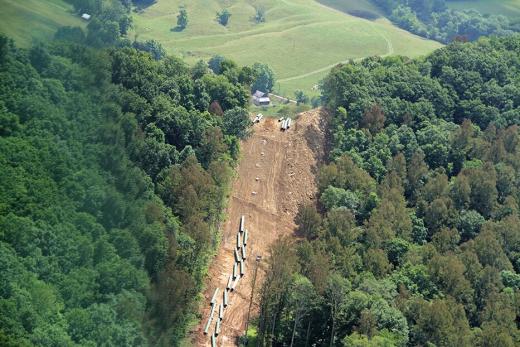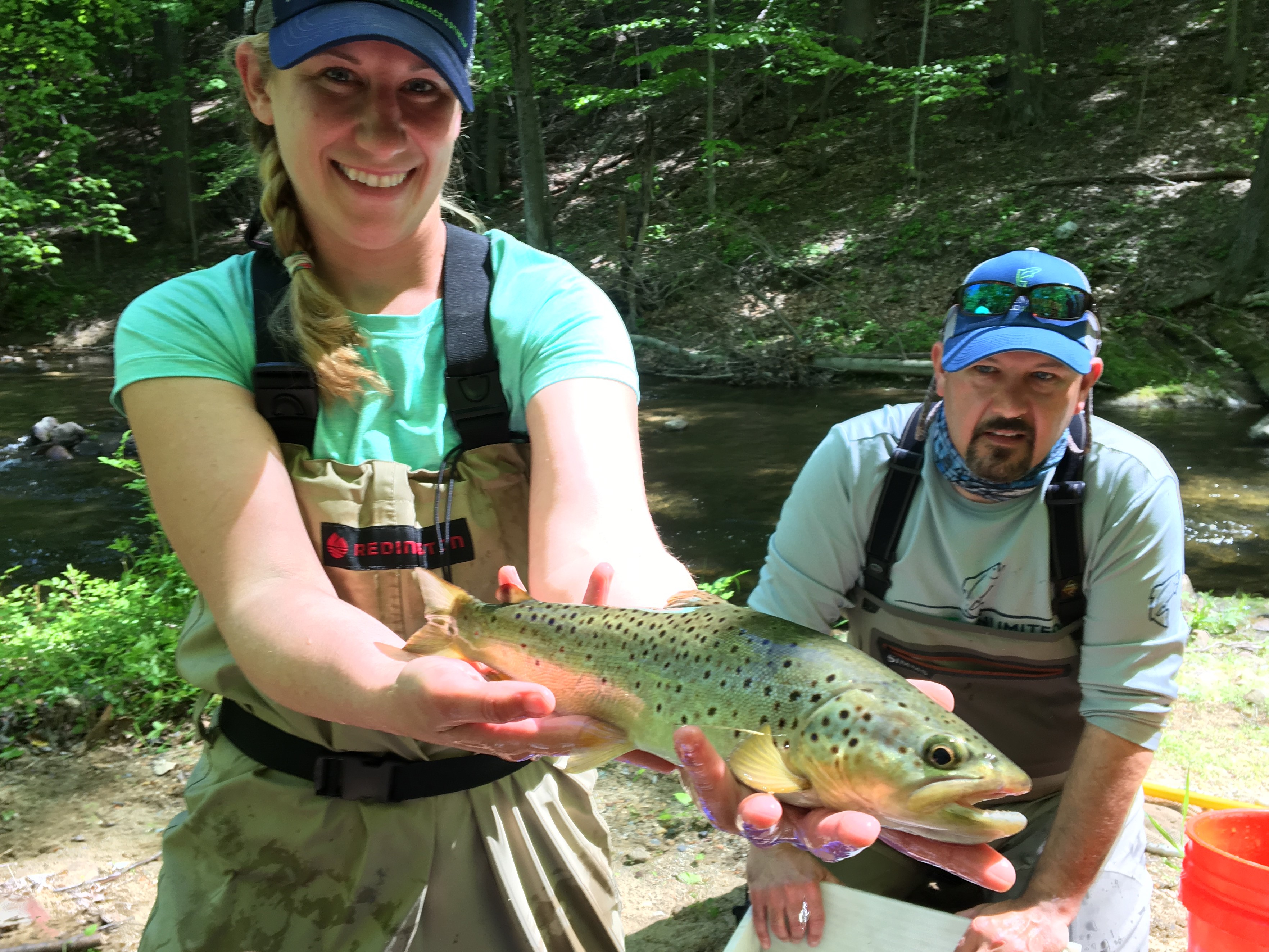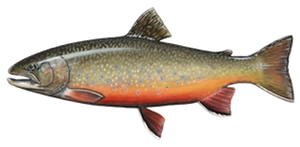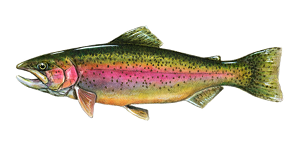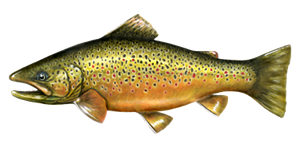Eastern Shale Gas Development
Goals
Over the past decade, energy companies have descended on the Mid-Atlantic to drill for gas in the Marcellus and Utica shales, which underlie parts of New York, Pennsylvania, West Virginia, Ohio, Virginia, and Maryland. These shale deposits have made the region a hotbed for hydraulic fracturing, or "fracking," which involves injecting water, sand and chemicals at high pressure to shatter deeply buried shales and extract the gas. More than 10,000 wells have been “fracked” over the past decade. Now, energy companies are building thousands of miles of pipelines to move the product from the drilling fields to eastern energy markets. The shale gas industry is clearing forested areas for wells, building new access roads, withdrawing water from rivers and streams, and carving wide corridors through areas that have yet to see impacts from shale gas drilling—areas with high-value trout habitat. This industrialization of remote areas could have profound effects on fishing and hunting in the region.
Tactics
TU advocates for responsible energy development across the country. Here, in a region with some of the best trout water in the country and many of the East's best remaining forested habitats, it is critical that shale gas and pipeline development be done in a way that protects these places special to sportsmen and women for future generations. Among the ways TU is working to protect our fish and wildlife resources:
- advocating for stronger policies and practices regarding shale gas and pipeline development at the state, local and federal levels;
- educating TU’s grassroots members about the threats to trout habitat from major pipeline development, and about how they can intervene in regulatory proceedings;
- monitoring gas drilling and pipeline impacts across critical watersheds via several hundred trained angler scientists in TU’s Coldwater Conservation Corps;
- promoting sound construction practices with willing industry partners;
- partnering with the Pennsylvania Fish and Boat Commission’s Unassessed Waters Initiative, surveying streams with the goal of discovering and protecting wild trout populations;
- facilitating the Sportsmen’s Alliance for Marcellus Conservation, a coalition of more than 280,000 sportsmen and women who are working together to identify and mitigate the impacts of shale gas drilling on hunting, fishing, trapping and other outdoor sporting activities.
Click HERE to visit Trout Unlimited's 10 Special Places report that looks at potential risks to public hunting and fishing grounds from shale gas development.
Victories
TU has been a staunch advocate for the protection of fish and wildlife habitat when it comes to shale gas exploration. From testifying at U.S. Senate hearings on energy and natural resources and participating in setting standards for best practices of energy development, to bringing the voice of sportsmen and women to state capitals in the region, TU is a valued voice when it comes to protecting coldwater habitat from shale gas drilling impacts. Over the past year, TU has:
- advocated for and attained wild trout stream designations for more than 500 streams in Pennsylvania (see "86,000 Miles of Streams" video, below), ensuring that more than 1,000 miles of streams received stronger protections under state water quality regulations when shale gas and pipeline infrastructure is proposed for these watersheds.
- Educated nearly 1,000 hunters and anglers across the region about the potential impacts from shale gas and pipeline development and opportunities to help protect sensitive fish and wildlife habitat.
- Developed a web map and planning analysis identifying areas of ecological significance that should be avoided by major pipeline infrastructure in the Delaware River Basin.
- intervened in major interstate pipeline development reviews, giving TU a seat at the table when decisions are made about development in trout watersheds.
- organized shale gas and pipeline monitoring training sessions for TU members and other volunteers across Pennsylvania, West Virginia and Virginia (see "Guarding our Waters" video, above), and hosted Snapshot Days to collect water quality data in National Forests.
- created a West Virginia trout atlas using Environmental DNA (eDNA) sampling to help identify trout streams in need of protection in the face of shale gas development.
Staff Contact
Dave Kinney, Mid-Atlantic Policy Director
dave.kinney@tu.org;
Author of this Page
Mark Taylor,
Eastern Communications Director

